School Discipline
Educational Advocacy
School Discipline Advocacy
Students in the foster care system experience higher rates of school discipline than the general population. Students of color with disabilities in foster care have disproportional rates of suspension in CA. It is important that you monitor school disciplinary actions, and advocate for the youth’s rights when needed.
Unexcused Absences
The details of truancy policies will vary by school district, but overall, the process tends to follow a similar route. The first unexcused absences usually result in a phone call home. After an allotted number, a letter and/or formal intervention will occur, usually in the form of a meeting or program. After further absences, an appointment will be made with the Dropout Prevention Office (or equivalent) to discuss alternatives. These could include alternative schools or additional supportive programs. If attendance still does not improve, further corrective action will be taken. See the San Francisco district flow chart of truancy below, or check online for policies for other districts.
Alternative Corrections
These corrections include meetings, case management, counseling, assessments, positive behavior supports, community service, and a variety of programs, such as those that address pro-social behavior, anger management, or restorative justice. They can be responses to a variety of behaviors and are usually the first disciplinary measure taken.
Suspension
A suspension results from a prohibited act (not truancy) performed in relation to the school. Acts related to the school include those on school grounds, en route to or from the school, or at a school sponsored activity. For most offenses, the school must first employ “alternatives” before resorting to suspension.
Before a student can be suspended, the school must hold an informal conference with the student to discuss the issue, barring certain exceptions. The school must also attempt to contact the student’s educational rights holder. The rights holder may request a meeting to discuss the issue further. If you hold educational rights for your youth, it is important to have this meeting to learn more.
Suspensions should not, under normal circumstances, last longer than five days, or 20 days total in a school year. The student will still be expected to complete assignments and tests.
We are hopeful that there will be a decrease in suspensions and high school dropout rates since Governor Gavin Newsom signed a bill to ban student suspension because of willful defiance. Willful defiance could be something as simple as showing up to school not in dress code, using a cell phone in class, or refusing to do what a teacher ask. Such a bill is important for all students, but especially Foster Youth because they are suspended at a higher rate than other students.
Expulsion
An expulsion is a longer-term removal from the entire school district. For a small number of zero-tolerance offenses, including firearm offenses, threatening with a knife, selling controlled substances, sexual assault, and possessing an explosive, the law requires immediate expulsion. For other acts, the student has a right to a hearing within 30 days and the right to bring a lawyer.
If expelled, the student can appeal within 30 days. The school must recommend a rehabilitation plan, to be considered upon reentry to the district. It could include recommendations for improved academic performance, tutoring, special education assessments, job training, counseling, employment, community service, or other rehabilitative programs.
Involuntary Transfer
In some cases, the school may transfer a student to a continuation school or a community day school. Find out more information about this option in the Additional Resources section below.
Special Education
A specialized set of procedures applies to students in special education or being considered for special education. If the student has violated the code of conduct, they may be removed from their current educational placement to an interim alternative educational setting or must be suspended for up to 10 days, provided it is a comparable response to what would be taken against a student without disabilities.
To change a placement for more than 10 school days due to misconduct, the school must hold an IEP meeting to make a manifestation determination, to which the attorney and welfare representative must be invited. A finding of manifestation means that the behavior was either caused by the disability or the improper implementation of the IEP. If this is the case, a different set of procedures applies. If not, the student may be disciplined in the same way as a student without disabilities. See the Special Education Discipline fact sheet below and visit our Special Education page for more information.
Behavior Improvement Plan (BIP)
If the IEP team finds that the student’s behavior was a manifestation of their disability, functional behavioral assessment (FBA) must be conducted, if one has not already been done. Also, a behavioral intervention plan (BIP) must be developed and implemented or, if one already exists, reviewed and modified to address the behavior.
A behavioral intervention plan (BIP) is a plan that may be developed when the behavior of a student with a disability impedes their learning, or the learning of others, and the student’s Individualized Education Program (IEP) team then considers the use of positive behavioral supports and other strategies to address the student’s behavior
Additional Resources
School Discipline Fact Sheet: Need-to-know basics on general school discipline.
Legal Services for Children (LSC) School Discipline Rights: Sheet on rights of students during school discipline
Special Education Discipline Fact Sheet: Need-to-know basics on school discipline for students with special education needs.
LSC Special Education Discipline Fact Sheet: Sheet on rights of students in special education during school discipline
SFUSD Flow Chart of Truancy Procedures: A chart explaining the steps that lead to different corrective action outcomes based on a student's attendance.
Acts Resulting in Suspension/Expulsion (CEC § 48900): Education Code outlining what acts may lead to suspension or expulsion from school.
LSC Suspension and Expulsion Manual: Manual for understanding procedures around school suspension and expulsion.
